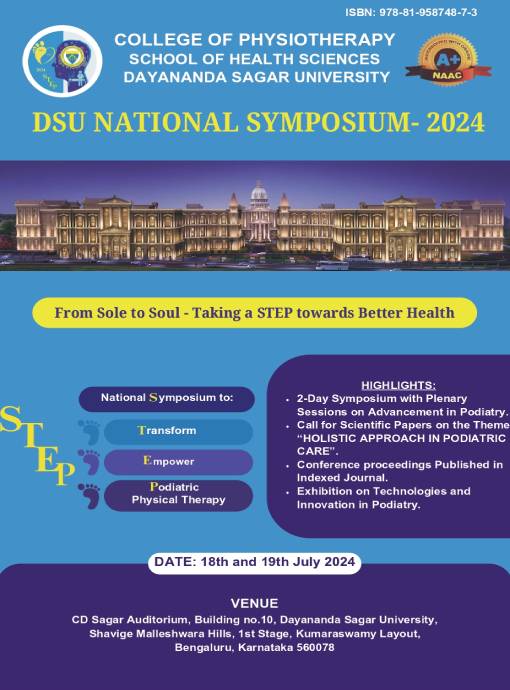Effects of Neuroplasticity Based Brain Gym Exercises on Concentration among Adults
DOI:
https://doi.org/10.18311/DSUPHY/9788195874873/2024/005Keywords:
Neuroplasticity; Brain Gym Exercise; Cognition; Concentration; Concentration QuestionnaireAbstract
Introduction: Brain Gym Exercises significantly improves the concentration function of the adults. Neuroplasticity has a tremendous impact on the adults in improving cognition, after six weeks of implementation of brain gym program. There was an increase in memory, cognitive function, concentration, attention and alertness to reduce senility or dementia.
Aim of the Study: The aim of the study was to evaluate the effect of Neuroplasticity based Brain Gym Exercises on concentration among adults.
Objective of the Study: The objective of the study was to evaluate the effect of neuroplasticity based brain gym exercises on aerobic exercises among adults while improving concentration.
Need of the Study: Concentration deficit can be frustrating, but most of the time they aren’t cause for concern. Age related changes are not the same thing as dementia. There are many ways to improve cognitive skills, prevent lack of concentration and protect the grey matter. Brain Gym exercises were given to overcome such problems in adults. Method: 20 Subjects from both the genders, in the age group of 35-45 years, who were noticed as suffering from concentration deficit, were separated into two groups, A & B. 10 subjects (A-experimental group) were given brain gym exercises and the remaining 10 subjects (B-control group) were given aerobic exercises for a period of six weeks, one hour per day for 5 days per week. The outcome measure used was concentration questionnaire.
Result: The data collected were statistically analysed by paired t-test. From the result of the statistics, it was found out that the level of concentration of the subjects was increased. Conclusion: The study concluded that brain gym exercise was more effective in improving concentration among adults.
Downloads
Published
How to Cite
Issue
Section
 Manjula S.
Manjula S.




